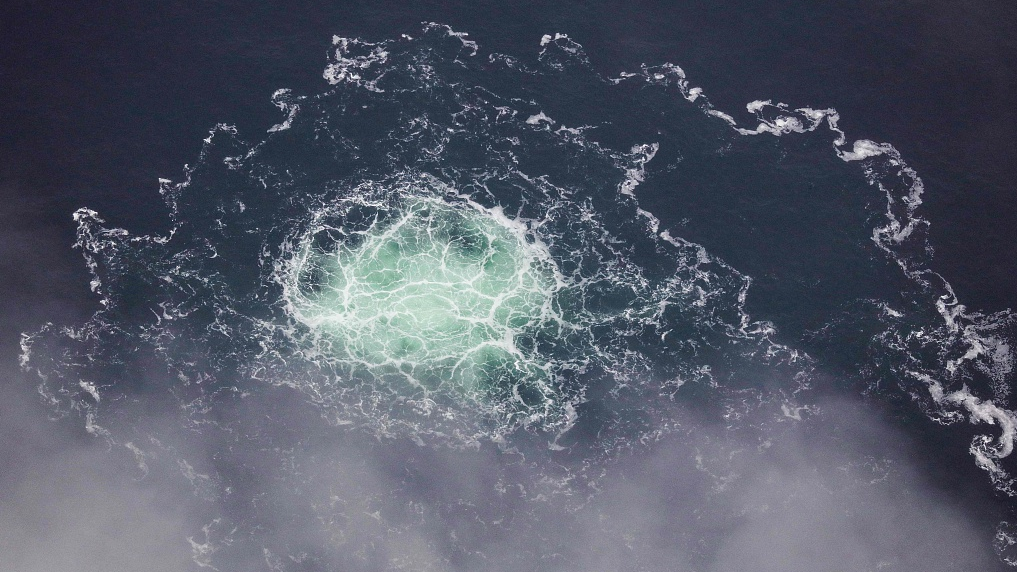
The release of gas emanating from a leak on the Nord Stream 2 gas pipeline in the Swedish economic zone in the Baltic Sea, September 28, 2022. /CFP
U.S. officials have rejected the report by a veteran U.S. investigative journalist who claimed Washington was behind the sabotage of the Nord Stream gas pipelines last year.
In a self-published report on his page on Substack web service, Seymour Hersh wrote that U.S. Navy divers helped by Norway had planted explosives on the pipelines running under the Baltic Sea between Russia and Germany last June and detonated them three months later.
White House National Security Council spokeswoman Adrienne Watson described the report as "complete fiction," while a Central Intelligence Agency spokesperson called the report "completely and utterly false."
Asked about Hersh's claim that Oslo supported the operation, the Norwegian foreign ministry said: "These claims are false."
The pipelines are multibillion-dollar infrastructure projects designed to carry Russian gas to Germany under the Baltic Sea.
Sweden and Denmark, in whose exclusive economic zones the blasts occurred, have both concluded the pipelines were blown up deliberately, but have not said who might be responsible.
The United States and NATO have called the incident "an act of sabotage." Moscow has blamed the West for the unexplained explosions that caused the ruptures. Neither side has provided evidence.
On Wednesday, Russia's foreign ministry said the United States had questions to answer over its role in explosions on the pipelines.
Construction of Nord Stream 2, designed to double the volume of gas that Russia could send directly to Germany under the sea, was completed in September 2021, but was never put into operation after Berlin shelved certification just days before Moscow sent its troops into Ukraine last February.
Hersh alleged the decision to bomb the pipelines, which were shut down but contained residual gas, was made in secret by U.S. President Joe Biden to cut off Moscow's ability to earn billions of dollars from natural gas sales to Europe.
The U.S. also believed pipelines gave Russia political leverage over Germany and Western Europe that could be used to weaken their commitment to Ukraine after the Russia-Ukraine conflict began, according to Hersh.
Two weeks before February 24, when Russia-Ukraine conflict began, Hersh noted that Biden himself said publicly that the U.S. would not allow the new Nord Stream 2 pipeline to be opened if Russia attacked Ukraine.
Hersh alleged, citing a single unnamed source, that the idea came up first in December 2021 in discussions among Biden's top national security advisers on how to respond to Russia's expected conflict with Ukraine.
The CIA developed the plan, and under cover of NATO exercises in June 2022, the U.S. Navy divers, with help from Norway, planted the explosives on the pipelines that could be detonated remotely, Hersh wrote.
Hersh is a former New York Times and New Yorker reporter who won numerous awards for his investigative journalism, including about the Vietnam war and the 2004 Abu Ghraib scandal following the U.S. invasion of Iraq.
More recently, he ignited controversy with a report disputing the Obama administration's version of the 2011 killing of al-Qaeda founder Osama bin Laden in a U.S. special forces operation, and another accusing Syrian rebels of staging an August 2013 sarin nerve agent attack on a Damascus suburb that killed hundreds of civilians.
(With input from agencies)


